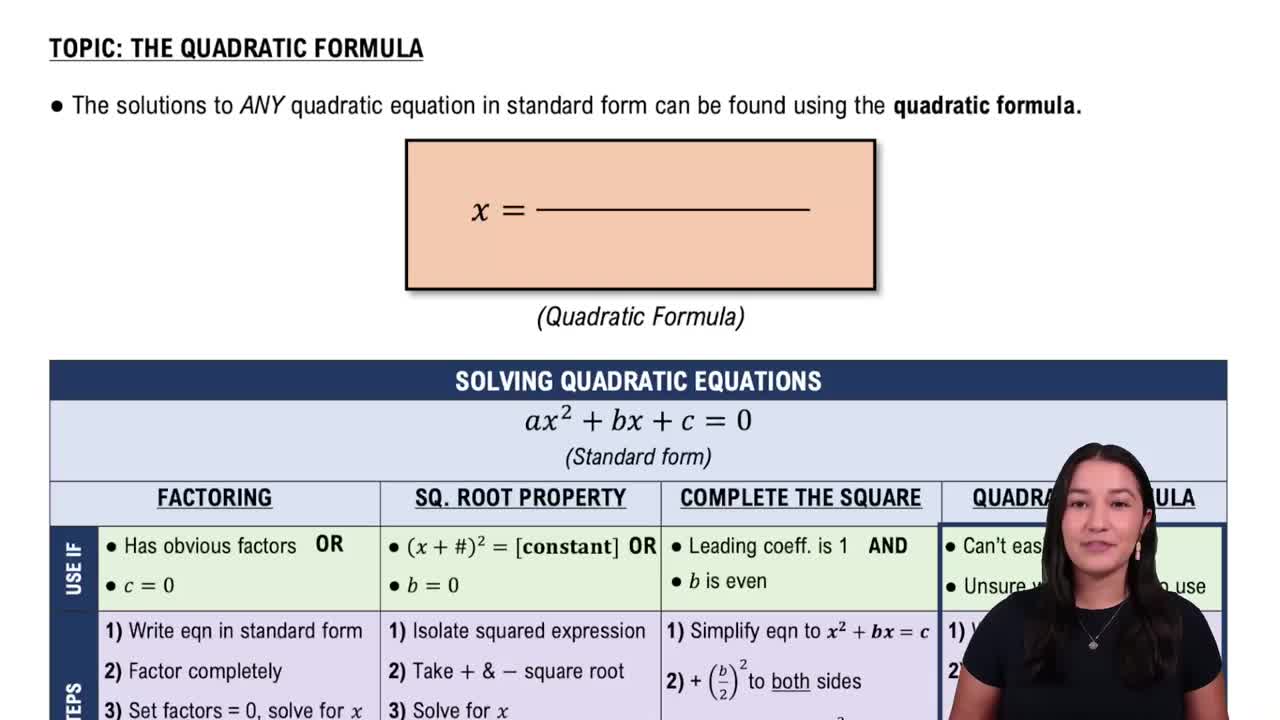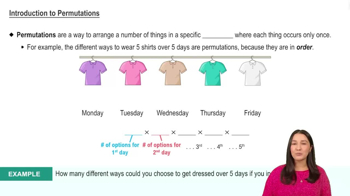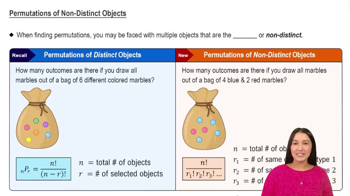Table of contents
- 0. Review of Algebra4h 16m
- 1. Equations & Inequalities3h 18m
- 2. Graphs of Equations43m
- 3. Functions2h 17m
- 4. Polynomial Functions1h 44m
- 5. Rational Functions1h 23m
- 6. Exponential & Logarithmic Functions2h 28m
- 7. Systems of Equations & Matrices4h 6m
- 8. Conic Sections2h 23m
- 9. Sequences, Series, & Induction1h 19m
- 10. Combinatorics & Probability1h 45m
10. Combinatorics & Probability
Combinatorics
Problem 49b
Textbook Question
Use the formula for nCr to solve Exercises 49–56. An election ballot asks voters to select three city commissioners from a group of six candidates. In how many ways can this be done?
 Verified step by step guidance
Verified step by step guidance1
Identify the problem as a combination problem where order does not matter.
Use the combination formula \( nCr = \frac{n!}{r!(n-r)!} \) where \( n \) is the total number of items to choose from, and \( r \) is the number of items to choose.
In this problem, \( n = 6 \) (the total number of candidates) and \( r = 3 \) (the number of commissioners to be selected).
Substitute the values into the formula: \( 6C3 = \frac{6!}{3!(6-3)!} \).
Simplify the expression by calculating the factorials and dividing them to find the number of combinations.
 Verified video answer for a similar problem:
Verified video answer for a similar problem:This video solution was recommended by our tutors as helpful for the problem above
Video duration:
3mPlay a video:
Was this helpful?
Key Concepts
Here are the essential concepts you must grasp in order to answer the question correctly.
Combinations
Combinations refer to the selection of items from a larger set where the order of selection does not matter. In this context, we are interested in choosing three city commissioners from six candidates, which is a classic example of a combination problem.
Recommended video:

Combinations
nCr Formula
The nCr formula, or 'n choose r', is used to calculate the number of ways to choose r items from a set of n items without regard to the order of selection. The formula is given by nCr = n! / (r!(n-r)!), where '!' denotes factorial, the product of all positive integers up to that number.
Recommended video:

Solving Quadratic Equations Using The Quadratic Formula
Factorial
A factorial, denoted as n!, is the product of all positive integers from 1 to n. Factorials are essential in combinatorial calculations, as they help determine the total arrangements of items. For example, 5! = 5 × 4 × 3 × 2 × 1 = 120.
Recommended video:

Factorials

 4:4m
4:4mWatch next
Master Fundamental Counting Principle with a bite sized video explanation from Callie
Start learning



